You fortuitously hear some beautiful melodies of a song played by the piano, and you wish you could produce such great music like that by yourself.
You harbor a dream of becoming a proficient and consistent piano player. But you are afraid that it will take you years of practicing and so many expensive piano lessons. Here is good news for you! All of that may not be necessary.
You may wonder how it can be. Then follow me, I will show you how to learn to play the piano fast.
Rules To Learn Piano Faster
Down below are very simple rules but many newbie might skip or not paying much attention. That is one of the reasons why piano learning is stagnant and difficult to go further, so make sure you don’t miss them.
1. Have A Piano For Yourself
Yes, it’s the very first things. Whether you go to piano classes or study at home, it’s a good idea to shop for a piano.
Having a private one at home will allow you to practice more after absorbing the theory.
If you only study theory or practice in the classroom and go home without rehearsal, you will not remember what is taught and find it challenging to master playing skills quickly.
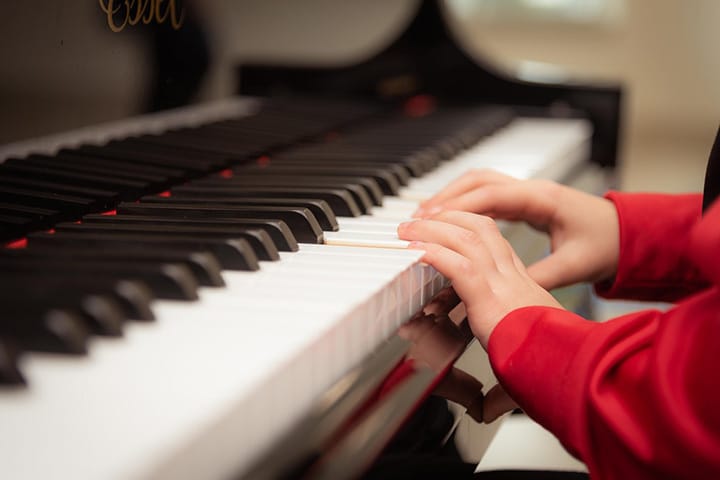
There are many different types of piano on the market, but if you are a new learner, you should buy an affordable yet big-sized piano because its sound quality will be better than the smaller ones.
An useful tip after buying the piano is to put the instrument in a flat position, a place with enough light, and quiet for you to focus on training without being disturbed.
It takes a thorough research and experiment to find out what kind of piano meets your needs. You have to seriously consider many crucial factors before buying, such as your budget, the space in your room that you have for the piano, and so on.
Acoustic piano is often more expensive than digital ones as they have better sound and tend to last longer. If you don’t have much money, a second-hand acoustic piano with affordable price will be the right choice for you.
Before making the decision, you should ask your teacher or someone who has experience for the best advice.
2. Get Familiar With Your Piano And Its Keyboard
Practice playing on your new piano and familiarize yourself with its sounds.
Identify the middle tones, flat tones, sharp tones, bass tones, and high tones. Then listen carefully to all of these sounds until they become familiar and you can distinguish between them.
Always keep in mind that this is your piano. The more you understand about your piano, the easier it is for you to master the skills. One of the essential keys in learning piano is your position.
Sitting at the center of the keyboard, preferably on a keyboard bench will help you have the proper posture for playing.
Keep your feet flat and firmly on the ground, at a comfortable distance.
At the same time, maintain your back in a straight position with the head slightly forward.
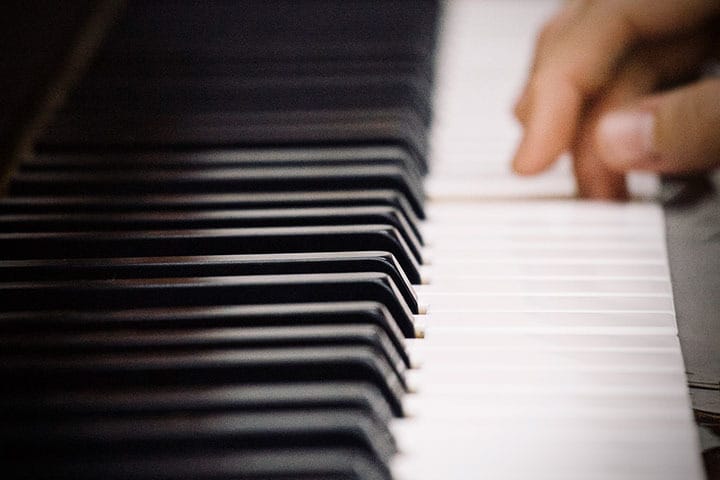
Your shoulders should be kept low and relaxing, giving your hands more flexibility.
The position from the elbow to the wrist must be parallel to the floor, with the elbow setting forward a little bit over the face.
When you move the arm to press the keys, keep the two elbows in line. This hand posture will help you reduce tension on the shoulders and arms.
3. Learn The Primary Keys, Chords, And Score
If you want to play the piano, you must understand the composition of piano music and study the major keys.
When you start learning to play the piano, you may find it difficult to remember all the keys and their location on the keyboard. But it is necessary for all beginners to remember that.
The piano keyboard includes two groups of black and white notes. That keyboard repeats musical notes from top to bottom through many octaves. Musical notes vary from low (left) to high (right side).
There are 12 musical notes in the chromatic scale on the piano: 7 notes with white keys (C, D, E, F, G, A, B) and five musical notes in black keys (C #, D #, F #, G #, A #).
To avoid boredom, you need to learn some basic features when you start playing the piano.
If you can learn the first basic chords well, then playing classical chords will become easier later because most popular piano tracks are based on simple chords.
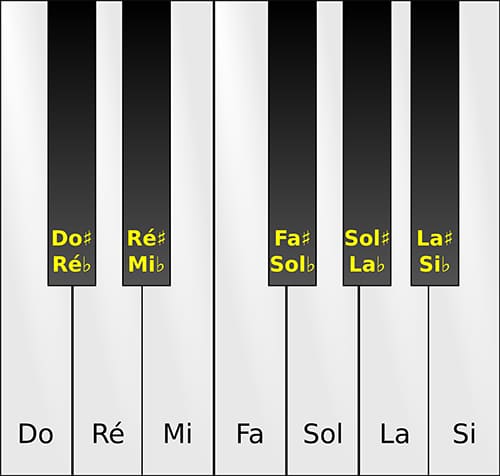
4. Mind Your Finger Placement
One of the fastest ways to learn piano is to place your fingers following standards and rules. You can get a basic understanding of finger placement from a beginner’s piano book.
Playing the notes with the right fingers is just as important as learning where they are located.
First of all, you should always sit in the middle of the piano. Each finger places on a white key.
Place the left-hand finger on the C note and the thumb on the G note.
There are two white keys (A and B) between your thumbs.
Then relax your arms and hands. Let your hands naturally form a C shape with your fingers and try to follow the guidance of the instruction book.
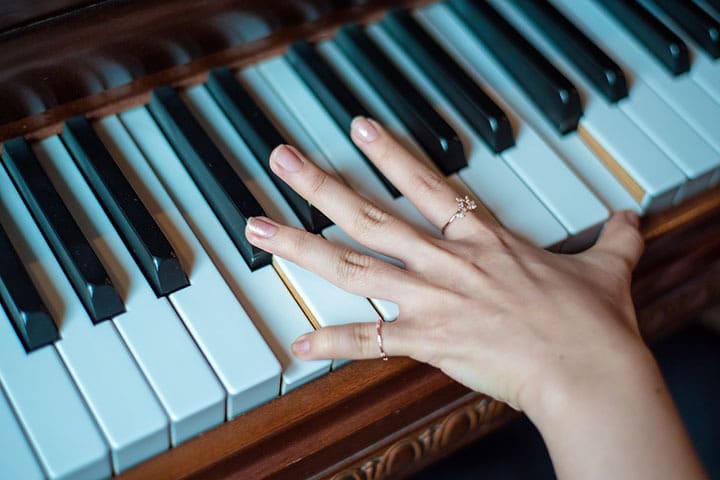
5. Start With Some Easy Songs
You should start with simple songs, which have a steady rhythm. Simple melody will help you to get used to the new piano with so many notes and keys in a slow but effective way.
Moreover, learning simple lessons will teach you to master finger placement as well as motivate you to maintain your practice for a long time.
Be relaxed; try to imagine yourself playing a piece of music that you are in the most recent training or your favorite song. Visualize the music in your mind; imagine how your fingers touch the fretboard and where to place the fingers.
There are many songs you can start to learn:
- Twinkle: twinkle little star 1 1 5 5 6 6 5 , 4 4 3 3 2 2 1 Twinkle, twinkle little star, how I wonder how you are 5 5 4 4 3 3 2 , 5 5 4 4 3 3 2 Up above the world so high, like a diamond in the sky 1 1 5 5 6 6 5 , 4 4 3 3 2 2 1 Twinkle, twinkle little star, how I wonder how you are.
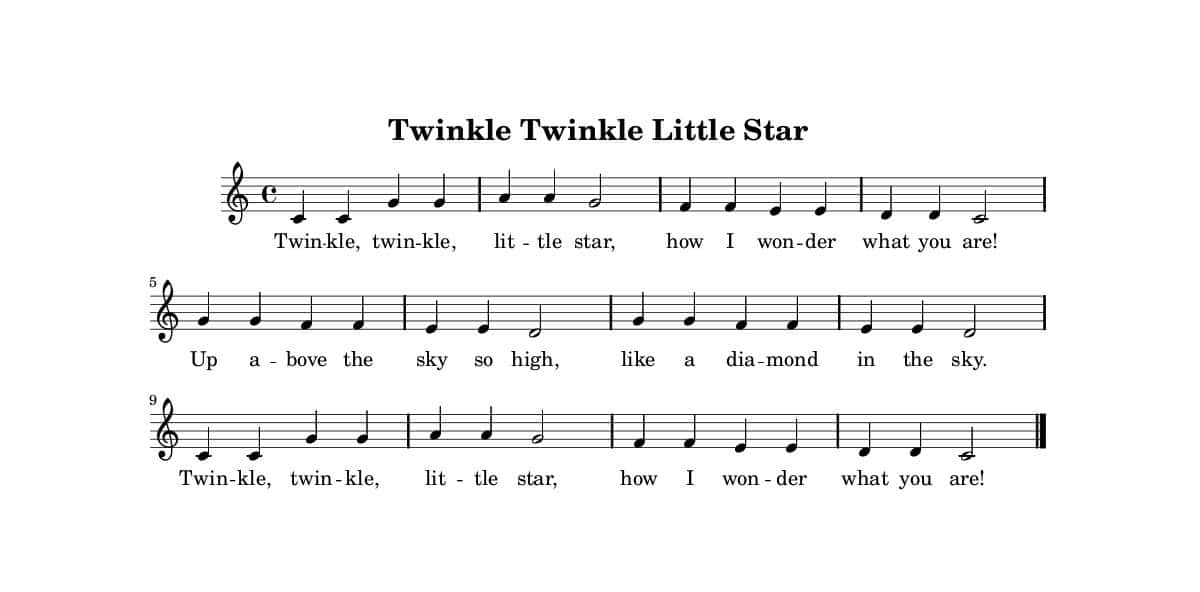
- Happy birthday: 1 1 2 1 4 3, 1 1 2 1 5 4, 1 1 8 6 4 3 2, 6# 6# 6 4 5 4 Happy birthday to you, happy birthday to you, happy birthday to …., happy birthday to you.
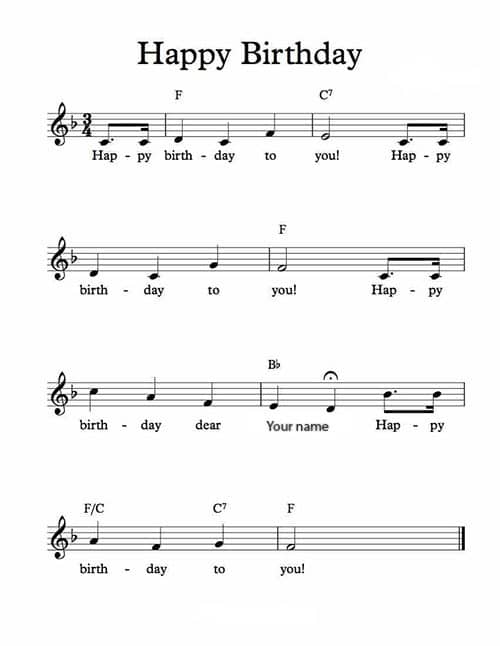
- Jingle bell: 3 3 3, 3 3 3, 3 5 1 2 3 Jingle bell, jingle bell, jingle all the way 4 4 4 4, 4 3 3 3, 3 2 2 3 2 5 Oh what fun it is to ride, in a one horse open sleigh! 3 3 3, 3 3 3, 3 5 1 2 3 Jingle bell, jingle bell, jingle all the way 4 4 4 4, 4 3 3 3, 5 5 4 2 1 Oh what fun it is to ride, in a one-horse open sleigh.
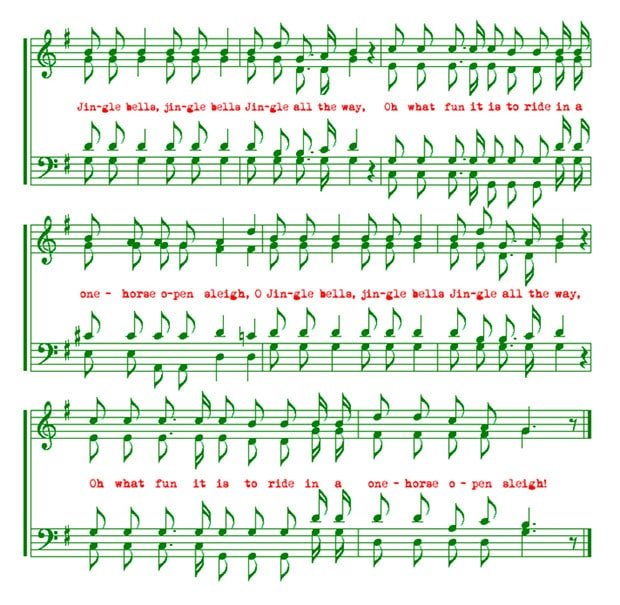
6. Have Your Piano Instructor
Instead of spending time studying through online videos only, you should register for piano classes in prestigious centers or have some professional piano teachers of your own.
Having a personal tutor may be the most costly, but also the most proficient way for you to learn piano.
Professional teachers will teach you how to learn in the fastest way. Besides, they will guide you to perfect your skills in playing music and mastering fingers.
Therefore, having teachers guide scientific and pedagogical methods is the most effective way to learn piano quickly.
Especially experienced piano players will realize your bad habits and help you avoid or subtract these habits.
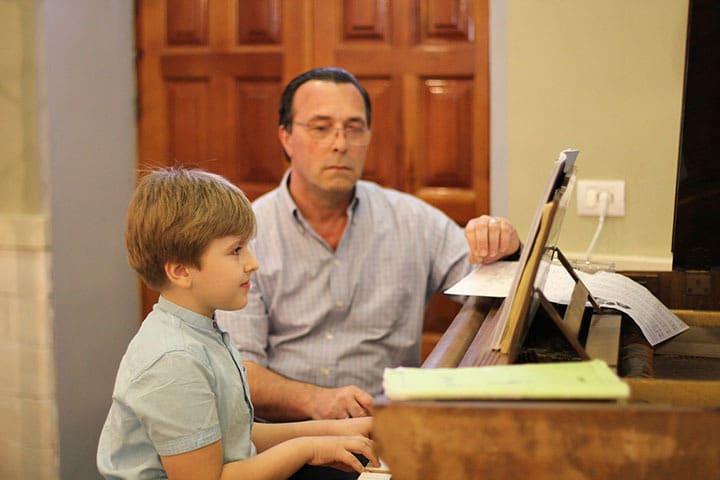
A good teacher will also assist you in evaluating your learning progress.
Without a teacher to monitor and instruct, you may miss out on the crucial skills.
Your technique will not have a good foundation, and it would be challenging to master.
They will know which song is suitable for you to practice at that time so that you will always have just enough challenges to keep yourself motivated and entertained.
Therefore, you can avoid struggling with complicated pieces of music that are out of your league.
If you study on your own, you can quickly lose your desire when encountering difficult pieces of music. Meanwhile, paying tuition for piano classes will help to motivate you to sit down and practice harder.
7. Schedule To Practice Piano And Stick With It
You will need to practice a great deal to learn how to play. Plan on practicing for at least 15 minutes every day to make a huge difference in your development.
By practicing regularly, you will create a good habit and maintain your hard work without much struggling. Remember not to move on to the next lesson until you’ve mastered the previous one.
Try to play the piece by heart. If you can do that, it is the best indication that you’re ready for more challenging lessons.
Setting goals for every lesson is an essential way to achieve your learning target. Having a clear goal will create a strong motivation for you to keep practicing, no matter how hard it is.
8. Be Patient With Yourself
Don’t worry too much about your wrong techniques or wrong postures when first starting to play. If you pay too much attention to your mistakes and worry about it, it’s hard to see other exciting points around.
Suppose that some of your friends only take two days to be proficient on a song, but you need seven days to master it.
That can affect your self-esteem a great deal. But remember that anxiety and inferiority are never helpful for the training process. Instead of that, working harder to correct your mistakes will make you closer to your goal.
You should try to learn the piano together with a few friends of yours. If you play with others, you will improve greatly in terms of technical and rhythmic aspects. Meanwhile, learning alone sometimes causes you to lose the focus and excitement as if you were playing with the others.
Tips And tricks
Take Advantage Of Free Resources
Make use of all free resources. YouTube is an incredible resource for learning, with countless excellent and free teaching videos.
Search for specific technical videos and learn from it, and you’ll be able to improve your skill at a faster pace.
Pay Attention To The Theory
The most important part of the music theory is to read the music sheet. Now, this seems extremely difficult at first, but it will become much easier when you have a clear idea of the basics.
When you first start learning, take it easy. Be patient with yourself and try to learn to play each note in the song properly. Once you get used to the rhythm of the song, you can increase your speed.
It would be better if you read two notes ahead of you when playing the piano. Once you understand all the notes, you can start focusing on the rhythm.
While playing, make sure that you are ready for the melody coming next. When you read better, try to read some notes or the beats before playing.
Play The Whole Song Through Without Stopping
When you make a mistake, don’t stop but keep playing. Ignore the notes you missed and try to regain the rhythm. Mistakes are inevitable while playing, but if you focus too much on it, it will distract you and make you lose motivation.
If you are looking for ways to enrich your life, learning music skills is a great way to do so. Playing piano has many health benefits, both mentally and physically.
Anyone can learn to play the piano, and this hobby may help you with the development of practical skills that will make you a more talented individual.